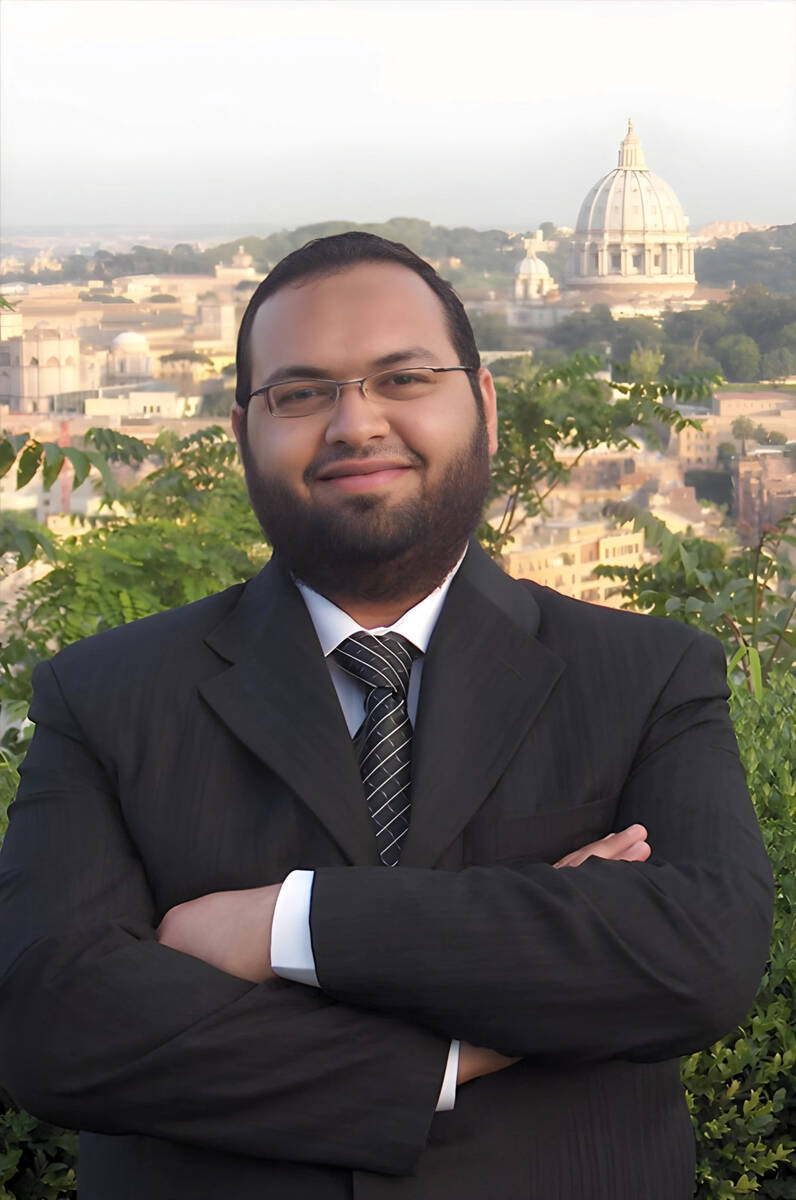BAKU: As world leaders at this year’s UN Climate Change Conference, COP29, discuss the responsibility of developed nations to finance climate action in vulnerable regions, South-South cooperation is emerging as a transformative force driving equitable energy transitions.
Saudi Arabia has established itself as a leader in this collaboration between countries in the Global South, leveraging its resources, expertise, and strategic partnerships to unlock Africa’s renewable energy potential and shape a more sustainable future.
In November last year, Saudi Energy Minister Prince Abdulaziz bin Salman signed groundbreaking memorandums of understanding with five African nations — Ethiopia, Senegal, Chad, Nigeria, and Rwanda.

The agreements, finalized during the Saudi-Arab-African Economic Conference in Riyadh, aim to strengthen collaboration in oil, gas, and renewables, representing a holistic approach to energy development.
“These partnerships symbolize more than economic exchanges; they represent our shared commitment to sustainable growth,” Prince Abdulaziz said at the event. “Africa’s energy potential is vast, and Saudi Arabia is committed to supporting its development for mutual prosperity.”
The five agreements align with Africa’s distinct energy opportunities. For instance, Ethiopia seeks to bolster its hydropower infrastructure, while Rwanda is focused on advancing innovation in oil demand management and integrating renewable energy.

By leveraging Africa’s untapped solar, wind, and hydropower resources, “Empowering Africa Initiative,” seeks to provide clean and reliable electricity to underserved regions. (Supplied)
These MoUs also emphasize Saudi Arabia’s role in supporting localized solutions in line with global climate goals.
To bridge the energy equity gap on the African continent, Saudi Arabia’s Ministry of Energy last year introduced the Empowering Africa initiative. The project leverages Africa’s untapped solar, wind, and hydropower resources to provide clean and reliable electricity to underserved regions.
This effort plays a key role in improving energy access in areas where electricity deficits hinder economic development and quality of life.
DID YOUKNOW?
• Africa has 10 TW of untapped solar energy and 350 GW of hydroelectric power.
• Continent posses more than 70 percent of the world’s cobalt, a vital mineral for green technologies.
According to a 2022 report by the International Renewable Energy Agency, Sub-Saharan Africa is home to 75 percent of the world’s population without access to electricity, making it the most energy-deficient continent.
The African Development Bank recently noted that Africa needs $130-170 billion annually to close its infrastructure gap, facing a financing shortfall of up to $108 billion.
Abid Malik, the geo head for Central Asia at the Saudi energy leader ACWA Power, said the projects associated with the Empowering Africa initiative “aren’t just about power” but also focus on “community upliftment and sustainable growth.”
On the sidelines of COP29 in Baku, Azerbaijan, Malik told Arab News: “By reducing dependency on imported fuels and creating local infrastructure, these efforts provide resilience against global energy volatility.”
African countries also have more than a fifth of the world’s reserves in minerals critical for the energy transition, according to the UN Trade and Development.

Abdul Malik of Acwa Power. (Supplied)
These minerals, including cobalt, lithium, and rare earth elements, make the continent crucial to the global renewable energy supply chain. Such resources are foundational to technologies like electric vehicle batteries, solar panels, and wind turbines.
Despite this, much of Africa’s value-added manufacturing in green technology occurs elsewhere, and the continent captures less than half of its potential revenue from minerals.
Rebeca Grynspan, secretary-general of UNCTAD, has warned that critical minerals could create a “development trap” for resource-rich, vulnerable countries due to commodity dependence.
She stressed the urgent need for these nations, which rely on raw materials for most of their export revenue, to move up global value chains.
Saudi Arabia has therefore prioritized partnerships that tap into Africa’s rich mineral resources while fostering localized value creation.
“These collaborations are about ensuring Africa benefits from its own resources,” said Malik of ACWA Power. “The focus is not just on extraction but on building industries that create jobs, generate revenue, and drive technological innovation.”
One such cooperation with Chad aims to integrate solar technology into existing energy frameworks while developing mining infrastructure to support critical mineral extraction. These efforts reflect a forward-looking strategy that aligns African nations with the Paris Agreement while driving economic growth.
Indeed, Article 6 of the Paris Agreement on climate change focuses on the development of carbon markets, which are carbon pricing mechanisms allowing governments as well as non-state actors to trade greenhouse gas emission credits.
Under this article, parties can voluntarily cooperate to meet emission reduction targets outlined in their nationally determined contributions. This allows a party to transfer carbon credits earned through emissions reductions to help others achieve their climate goals.
And as financing gaps remain a key challenge hampering progress in the Global South, Saudi Arabia is leading efforts to deploy innovative mechanisms, including voluntary carbon markets.
Riham El-Gizy, the CEO of Saudi Arabia’s Voluntary Carbon Markets Company, stressed the significance of directing climate finance to Africa.
“Only 2 percent of global climate finance reaches the Global South. This needs to change,” El-Gizy told Arab News at COP29.

Riham El-Gizy. (Supplied)
Although Africa accounts for nine of the world’s 10 most climate-vulnerable countries, the continent receives a mere 3-4 percent of global climate finance, according to the African Development Bank.
To boost funding for local African communities, Saudi-backed initiatives, through voluntary carbon markets, are enabling the continent’s countries to monetize their carbon reduction efforts.
“By providing a platform for rural renewable energy projects, we’re creating a pipeline for funding that directly benefits local communities,” said El-Gizy.
This approach not only reduces emissions but also empowers rural areas with much-needed resources, bridging gaps in both finance and energy access.

At the heart of Saudi Arabia’s engagement in Africa is the “Empowering Africa Initiative,” a Ministry of Energy project designed to bridge the continent’s energy equity gap. (Supplied)
Saudi Arabia’s leadership in South-South cooperation offers a roadmap for inclusive energy transitions. Its strategy, spanning renewable energy, critical minerals, and carbon markets, underscores the power of equitable partnerships in addressing the climate crisis.
As COP29 unfolds, the emphasis on South-South collaboration reaffirms that Africa’s potential as a renewable energy leader can only be realized through partnerships that prioritize shared growth.
Saudi Arabia’s investments in Africa showcase how collaboration can drive sustainable development, paving the way for a cleaner, more inclusive global energy future.







































